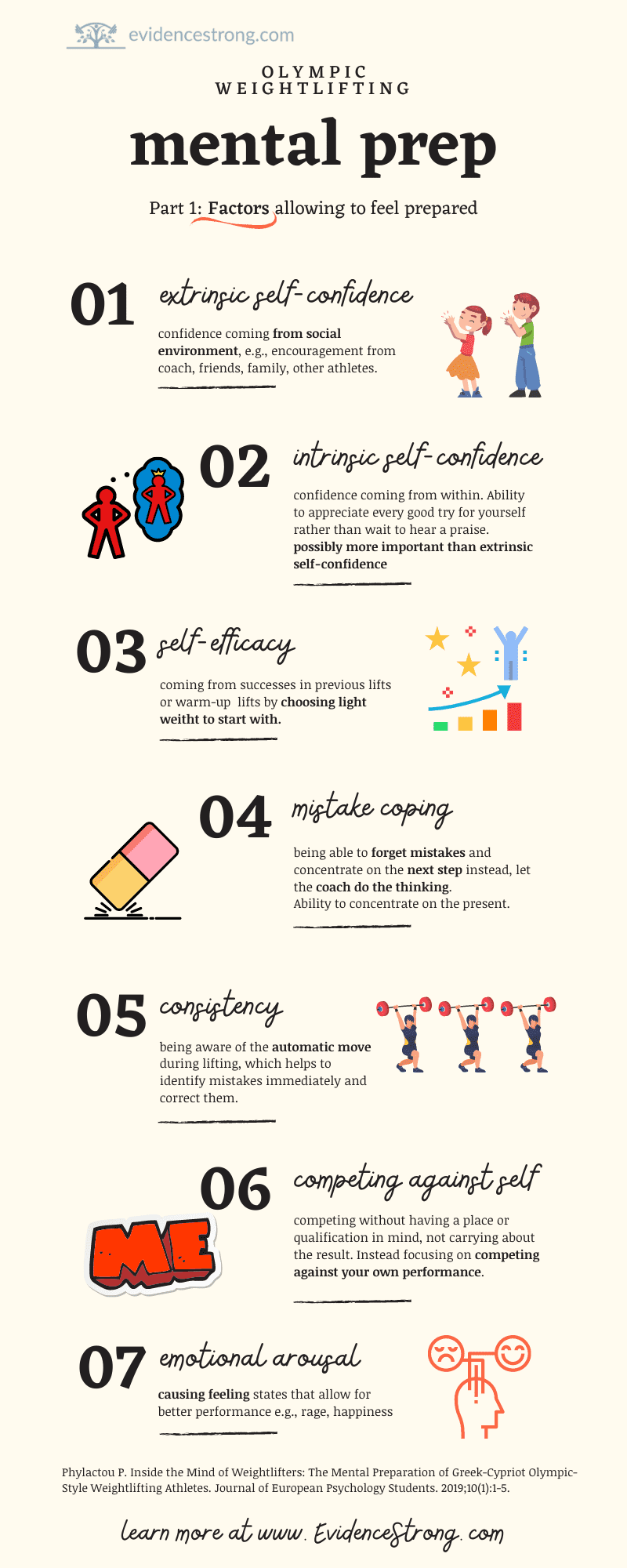Summary of interviews with non-elite Olympic weightlifters on mental techniques and skills they use to improve their performance.
Who
7 non-elite Olympic weightlifters (2 females, 5 males) aged 24.1 ± 3.2 years (Cyprus). Athletes had on average 3 years of experience and competed at least once in the national competition (5 athletes competed internationally).
Design
In-depth semi-structured interviews
Outcome measures
- Perceptions on mental preparation
Main results
All athletes thought that mental preparation in important, especially during competition.
Some athletes thought that there is a connection between mental state and performance / physical state. They thought that if you are not ready mentally, you will not be able to utilise what your body can do.
Two main themes from the inteviews were:
- “mental techniques” - factors allowing to feel prepared:
- “extrinsic self-confidence”
- “intrinsic self-confidence”
- “self-efficacy”
- “mistake coping”
- “consistency”
- “competing against self”
- “emotional arousal”
- “mental techniques” - factors allowing to feel prepared:
- “mental skills” - processes to prepare mentally:
- “imagery”
- “self-talk”
- “routine”
- “distance”
- “focus”
- “push for maximum”
- “sense arousal”
- “arousal control”
- all athletes recognised “mistake coping” as important, as it relates to performance, but did not name specific processes to achieve it.
- external vs internal comfidence were mentioned by the athletes. As internal confidence was described as more important, athletes should audit their reliance on social environment for confidence.
- avoiding others (opponents) was considered vital
- almost all athletes used audio-visual materials like slow-motion videos of lifts.
- overuse of “push for maximum” may promote overuse of the body and injuries, therefore should be used wisely.
- imagery was used by all non-elite athletes in this study, but each person had a preference to use either external of internal imagery. Olympic-level athletes has shown to use both types.
- ability to “focus” used by all athletes was also recognised in the literature as a skill separating successful from unsuccessful athletes.
- breathing (especially deep breathing) was used to control arousal.
Take home message
Original article
Phylactou P. Inside the Mind of Weightlifters: The Mental Preparation of Greek-Cypriot Olympic-Style Weightlifting Athletes.Journal of European Psychology Students. 2019;10(1):1-5.

